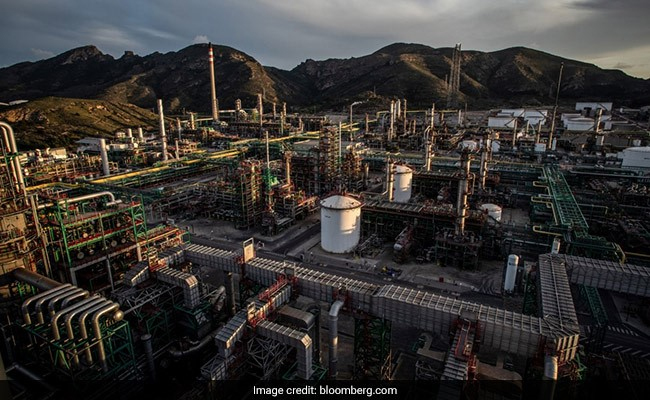news details |
|
|
| $100 oil may be a double shock for world economy | | |  Oil's surge toward $100 a barrel for the first time since 2014 is threatening to deal a double-blow to the world economy by further denting growth prospects and driving up inflation. Oil's surge toward $100 a barrel for the first time since 2014 is threatening to deal a double-blow to the world economy by further denting growth prospects and driving up inflation.
That's a worrying combination for the U.S. Federal Reserve and fellow central banks as they seek to contain the strongest price pressures in decades without derailing recoveries from the pandemic. Group of 20 finance chiefs meet virtually this week for the first time this year with inflation among their top concerns.
While energy exporters stand to benefit from the boom and oil's influence on economies isn't what it once was, much of the world will take a hit as companies and consumers find their bills rising and spending power squeezed by costlier food, transportation and heating.
According to Bloomberg Economics' Shok model, a climb in crude to $100 by the end of this month from around $70 at the end of 2021 would lift inflation by about half a percentage point in the U.S. and Europe in the second half of the year.
More broadly, JPMorgan Chase & Co. warns a run-up to $150 a barrel would almost stall the global expansion and send inflation spiraling to over 7%, more than three times the rate targeted by most monetary policy makers.
"The oil shock feeds into what is now a broader inflation problem," said long-time Fed official Peter Hooper, who's now global head of economic research for Deutsche Bank AG. "There's a decent chance of a significant slowing of global growth" as a result.
Oil is about 50% higher than a year ago, part of a broader rally in commodity prices that's swept up natural gas too. Among the drivers: A post-lockdown resurgence in worldwide demand, geopolitical tensions ignited by oil giant Russia and strained supply chains. Prospects for a renewed Iranian nuclear deal have at times cooled the market.
Still, the rise has been piercing. Just two years ago, oil prices plunged briefly below zero.
Fossil fuels -- oil, as well as coal and natural gas -- provide more than 80% of the global economy's energy. And the cost of a typical basket of them is now up more than 50% from a year ago, according to Gavekal Research Ltd., a consultancy.
The energy crunch also compounds the ongoing squeeze in global supply chains, which drove up costs and delayed raw materials and finished goods.
Vivian Lau, who runs a global logistics company based in Hong Kong, said her customers are already closely watching rising fuel costs.
"The price of oil is definitely a concern," said Lau, vice chair and group chief executive officer of Pacific Air Holdings. "The increase is happening at a time when air freight prices are already very high."
Economists are war gaming scenarios from here.
Goldman Sachs Group Inc., which sees oil at $100 in the third quarter, estimates a 50% increase lifts headline inflation by an average of 60 basis points, with emerging economies hit most.
The International Monetary Fund recently raised its forecast for global consumer prices to an average 3.9% in advanced economies this year, up from 2.3%, and 5.9% in emerging and developing nations.
"With inflation currently at multi-decade highs and uncertainty surrounding the inflation outlook already unprecedented, the last thing the recovering global economy needs is another leg higher in energy prices," HSBC economists Janet Henry and James Pomeroy wrote in a Feb. 4 report. "Yet that is what it is getting. |
|
|
|
|
|
|
|
|
|
|
|
|
| |
| |
|
|
|
|
 |
|
|
|
|
STOCK UPDATE |
|
|
 |
| BSE
Sensex |
 |
| NSE
Nifty |
|
|
| |
CRICKET UPDATE |
|
|
|
|
|
| |
| |
|
|
| |
|
|
|
|
| |
|
|
|
|
|
|
|
|
|
|
|
|
|
